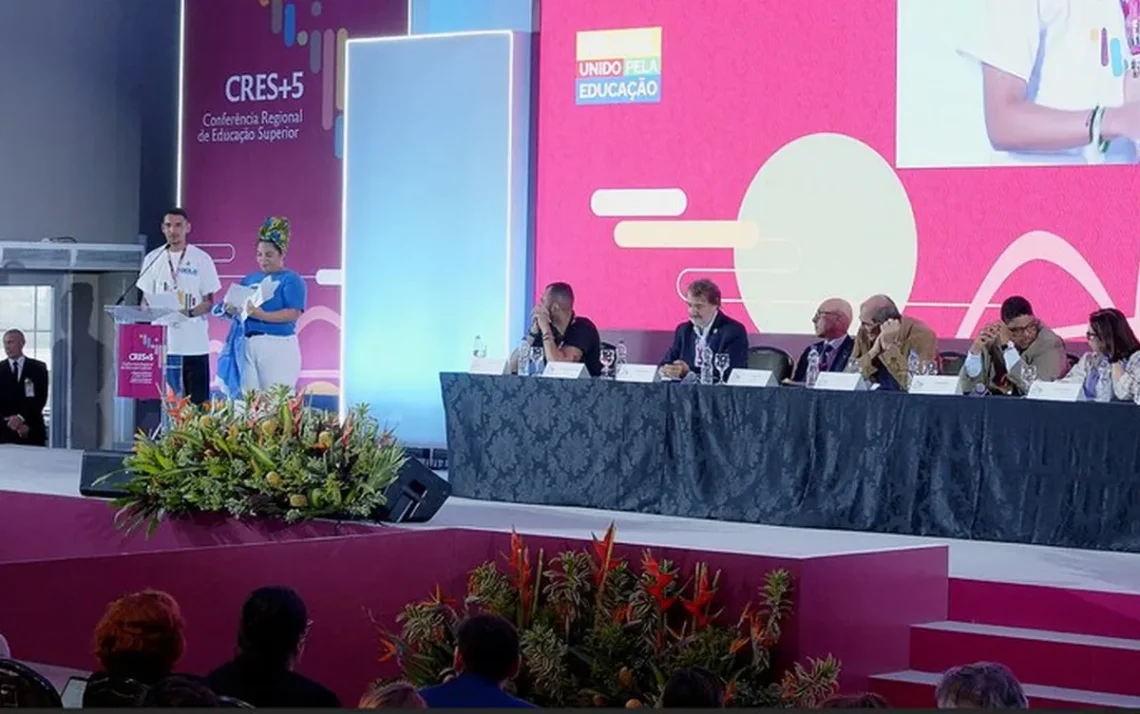Latin American and Caribbean countries push for higher education as a universal human right and a social good, essential for sustainable development and social justice.
The II Regional Summit on Higher Education (CRES+5) was recently held in Brasilia, gathering experts and authorities to discuss the progress and challenges in the field of higher education. The event highlighted the importance of investing in higher education to promote economic growth and social development.
During the summit, participants emphasized the need for policies that support access to university education and promote the quality of tertiary education. Discussions focused on strategies to enhance collaboration between governments, academic institutions, and the private sector in order to improve the overall higher education system in the region. It was a fruitful opportunity to exchange knowledge and best practices in the field of higher education.
Opposition to Commercialization and Privatization
One of the core principles highlighted in the final declaration of CRES+5 is the firm opposition to the commercialization and privatization of education systems at all levels, emphasizing the importance of preserving higher education as a public good rather than a commodity. The declaration also stresses the need for the implementation of controls to prevent the trend towards the commodification of education, safeguarding the accessibility and quality of university education. It is vital to maintain higher education as a public good accessible to all, ensuring that tertiary education remains a cornerstone of society’s development and progress.
Defending the Emancipatory Model
The document underlines the significance of defending the emancipatory model of education, which is crucial for fostering sustainable development and promoting social justice. In order to uphold this model effectively, it is imperative to advocate for the democratic rule of law, support higher education institutions, and establish a diversified education system. By embracing an open, plural, and inclusive approach to education, grounded in humanistic ideals, we can reaffirm the public significance of knowledge and empower individuals to create positive change within their communities.
Addressing Historical Debt and Decolonizing Perspectives
In acknowledging the ongoing deterioration of working conditions for higher education workers, it becomes apparent that higher education must also address the historical debt owed to indigenous peoples and Afro-descendants. This involves educating against racism, discrimination, and intolerance while promoting policies that ensure equal opportunities for marginalized groups. Adopting a decolonizing perspective is essential to reimagining higher education in Latin American and Caribbean contexts, emphasizing the need for collective action towards a more equitable and inclusive future.
Fostering Full Citizenship and Social Justice
Higher education institutions play a pivotal role in promoting full citizenship, social justice, and sustainable development within society. By creating spaces that prioritize equity, diversity, and lifelong learning, universities can contribute significantly to regional integration and well-being. The commitments outlined in the CRES+5 declaration aim to establish a new paradigm for education, centered on empowering students and fostering dialogue and cooperation among diverse stakeholders.
Promoting Regional Integration and Collaboration
One of the key objectives of the CRES+5 declaration is to promote regional integration and collaboration in higher education, science, and technology. By fostering horizontal and supportive cooperation among governments, societies, and educational institutions, we can work towards best practices promotion and co-participation. The creation of a Regional Knowledge Agency (ARCO) is envisioned to facilitate collaborative research, extension, and innovation, further solidifying the role of higher education in shaping a sustainable and equitable future.
Ensuring Equitable Access to Higher Education
The essence of ‘Convergence’ lies in the belief that free higher education is a universal human right essential for social development, environmental preservation, and sustainability. Investments targeted at marginalized populations are crucial to expanding access to higher education and empowering individuals to contribute meaningfully to society. The commitments made at CRES+5 pave the way for the advancement of higher education as a catalyst for positive change and progress.
Upholding the Value of Higher Education Institutions
Representatives at CRES+5 underscore the pivotal role of higher education institutions in building a future grounded in full citizenship, social justice, and sustainable development. By ratifying regional and global conventions on higher education qualifications, states can further promote regional integration and collaboration. The shared vision of creating a more inclusive and equitable education system drives the discussions at CRES+5, emphasizing the transformative power of higher education in shaping a better future for all.
Fonte: @ Ministério da Saúde






Comentários sobre este artigo